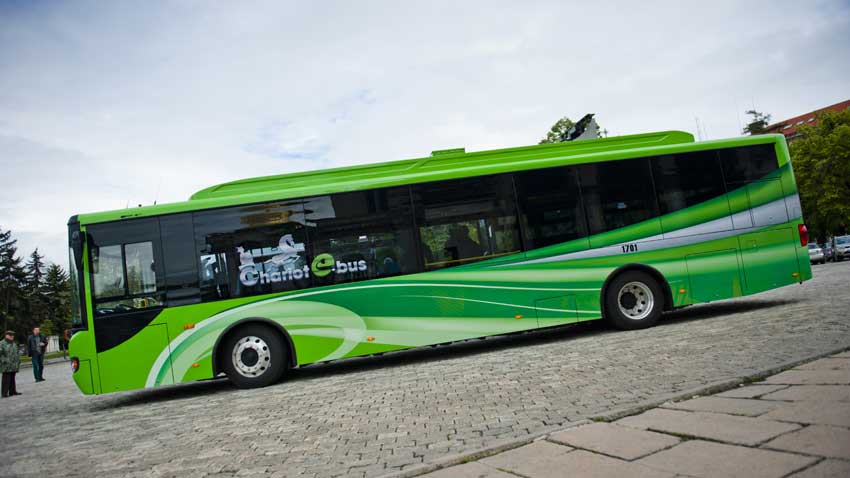A new-generation electric bus that uses ultra-capacitors instead of traditional batteries is already transporting passengers in Sofia. These modern vehicles already known in the U.S. and China come to Europe for the first time. Ultra-capacitors give less mileage than lithium-ion batteries but the charging time is much shorter. This advantage combined with the low weight of the capacitors and their lower cost in comparison to batteries makes them perfectly suitable for use in the urban public transport. According to Tsvika Zimmerman, Chairman of the Board of Directors of Bulgarian - Israeli Company Chariot Motors, the cost per kilometer with the new vehicle is 80 percent lower than that of conventional diesel buses. Figures are yet to be confirmed during the nine-month trial of the electric bus in the streets of Sofia.
The other big advantage of the modern bus is the lack of harmful emissions. Sofia is one of the most polluted capital cities in Europe and the municipality has been working on a program for making public transport environmentally friendly.
"During the past year, the Sofia Municipality invested nearly 200 million euro in various projects for the purchase of environmentally-friendly vehicles", Mayor Yordanka Fandakova says. "20 new trams have been delivered to Sofia and some of them already serve the No1 line in the city. By the end of the year we expect 50 new trolley buses, as well. At the end of July the first 5 out of 126 new environmentally friendly buses will also arrive to Sofia. These huge investments are financed by the Environment Protection Operational Program and the Operational Program for Regional Development."

Mrs. Fandakova added that the municipality also encourages the purchase of electric cars, which are allowed free parking in the blue and green areas of the city. According to Fandakova, there are 65 electric cars registered in Sofia.
The new electric bus that is currently being tested serves one of the existing trolley bus lines of the city. Here is what us:
"It is easier to drive than traditional trolleys as you are not limited by the grid. It is like a trolley bus that does not need to draw electricity from the grid, but uses ultra-capacitors. They charge fully for 8 minutes and this is enough for the bus to travel 30 kilometers”, driver Ivo Atanasov toldRadio Bulgaria.
Tsvika Zimmerman from Chariot Motors has voiced intentions in case of good results to move the assembly of such buses to Bulgaria. Currently they are produced in China by Shanghai company Hager, which is a partner of Chariot Motors. Mr. Zimmerman's statement for Radio Bulgaria is contained in the audio file.
English version: Alexander Markov
One of the most ancient breeds in Europe, the Karakachan dog is the first Bulgarian indigenous breed of farm animal recognized by the Animal Breeds Commission of the Ministry of Agriculture in 2005. It owes its name to the nomadic sheep breeders known..
The tailor shop of the Pedrie and Mümin Mestan family is located on one of the busiest streets in Brussels’ Schaerbeek district. They are originally from Kardzhali but have been living abroad for more than 35 years. In the summer of 1989, they left..
The Balkan Mountain, ceramics and the plum fruit are the emblem of the Troyan region. And the locals know how to preserve their traditions. The event that marks the end of the agricultural year at the end of each September – the Bulgarian Plum Festival –..

+359 2 9336 661
